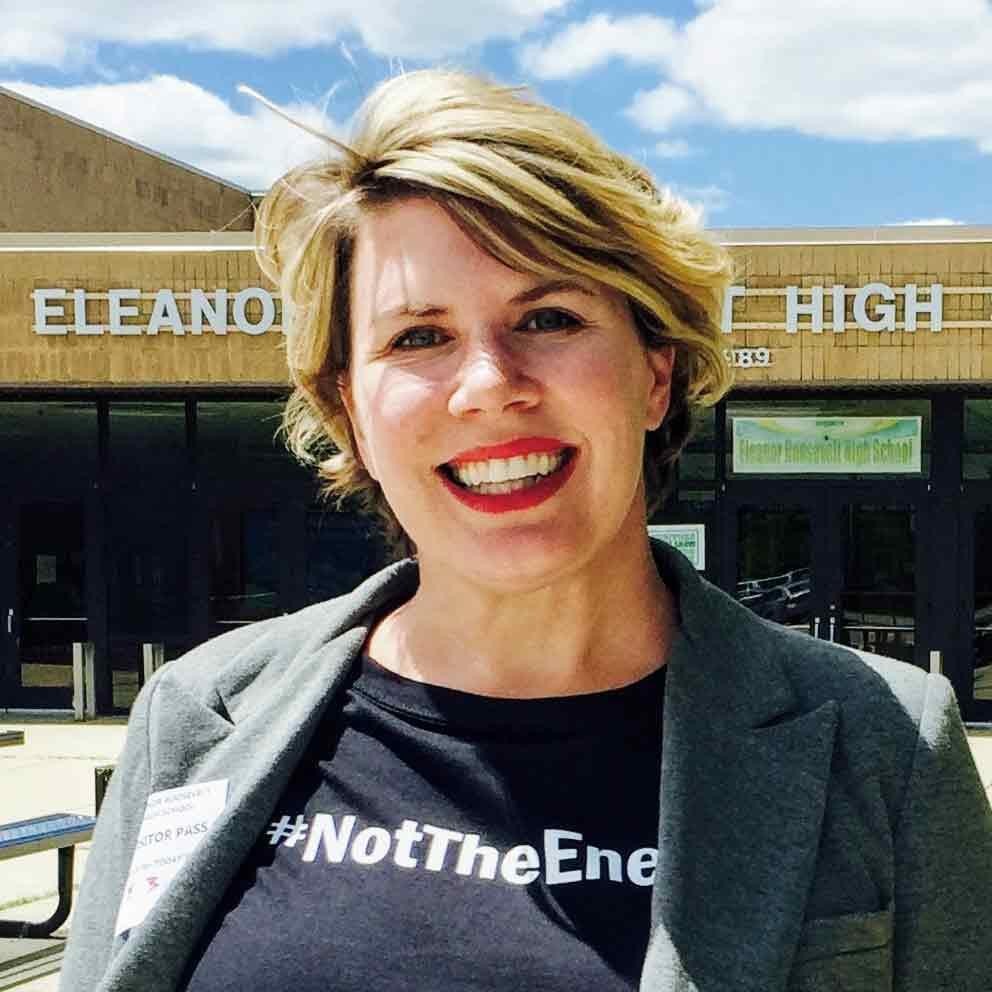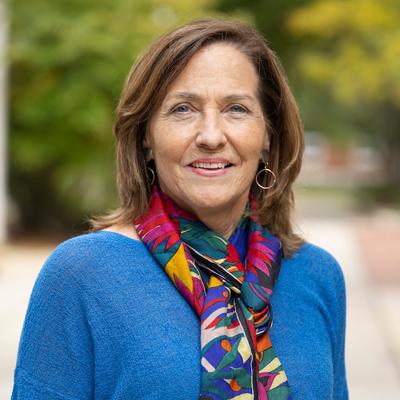Media, Self and Society
The impact of media and technology on the world
Introduction
Print, televised and social media impact every facet of our lives. Yet to what extent are we aware of how they affect us and our view of the world?
Media, Self and Society analyzes the role that various forms of media play in society, prioritizing critical thinking about media production and consumption. Students assess the source, message and meaning of different modes of media, examining:
- The effects of social media on our self-perception, relationships and beliefs;
- Viral deception and misinformation online; and
- The ways in which news and entertainment media represent—or misrepresent—marginalized communities.
Students take part in discussions; create media, from TikTok videos to infographics, that focus on self-exploration and civic engagement; and learn from working journalists, media experts and other guest speakers. The goal: to become active, rather than passive, in our interactions with media.
The Media program welcomes students of all majors and provides critical thinking and analysis skills fundamental to all career endeavors.
Colloquium and Lecture Topics
- Media transformation: The disappearing newspaper
- The psychology of advertising
- Media and violence: The role of video games
- Technology and the music industry
I have had the opportunity to explore my interests through hands-on experiences while also developing my communication skills. I am so grateful to be a part of a community that not only encourages me to be myself but also challenges me to be the best version of it.
Other Learning Opportunities
Students get a real-world perspective on the media—both what it’s like to work in the media and the impacts of the media on society—through:
- Field trips to media outlets and cultural sites, such as NBC4 Washington studios, NPR headquarters and the National Museum of African American History and Culture;
- Visits to various news studios and the 9/11 Memorial and Museum during our annual trip to New York City; and
- Guest speakers, particularly working professionals in journalism, advertising, technology and public relations.
During their sophomore year, students fulfill a practicum requirement, which allows them to gain professional experience in their chosen fields. Past Media students have:
- Written for The Diamondback campus newspaper;
- Broadcast sports games with WMUC, the campus radio station;
- Worked on a political campaign; and
- Interned at Microsoft.
In all cases, students were able to apply the analytical skills they learned in the program and assess the role that various media played in that organization.
Curriculum Overview
Over the two-year program experience (four semesters), students will complete 2 supporting courses, totaling 6–8 credits, that will count toward their Media Scholars citation. In most cases, these will also fulfill General Education requirements. Note that your Scholars courses—colloquium, practicum and supporting course(s)—will generally be in addition to any courses you take to satisfy major requirements.
The following table represents a typical two-year curriculum, but individual schedules may vary. Details about courses and requirements can be found on the Media Citation Checklist.
| SEMESTER | COURSES | CREDITS |
|---|---|---|
| Freshman Fall | Scholars Colloquium | 1 credit |
| Academic Writing | 3 credits | |
| 3–4 courses toward degree and major requirements (including possible supporting course) | 9–12 credits | |
| Freshman Spring | Scholars Colloquium | 1 credit |
| 4–5 courses toward degree and major requirements (including possible supporting course) | 12–15 credits | |
| Sophomore Fall | Analyzing Media Practice through Theory | 3 credits |
| 4–5 courses toward degree and major requirements (including possible supporting course) | 12–15 credits | |
| Sophomore Spring | Scholars Practicum (if not already taken in the fall) | 1–3 credits |
| 4–5 courses toward degree and major requirements (including possible supporting course if not already completed) | 12–15 credits |
Sponsoring College
Residence Hall
Cumberland Hall
Office Address
1122 Cumberland Hall
Office Phone
Faculty


Social Media Etc.
Media, Self and Society News
10 Scholars Alums to Serve as Spring Commencement Senior Marshals
A significant number of Scholars alumni will be serving as Senior Marshals at the University of Maryland commencement this Friday, May 21, 2021. Senior Marshals are graduating seniors who display the highest levels of scholarship, service, extracurricular activity and personal growth.
Despite Being Virtual, Scholars Showcases Promote Personal Interaction
For most University of Maryland (UMD) students, the end of the spring semester heralds the start of finals. But for sophomores in College Park Scholars, for the past 24 years, this time of year has signified Academic Showcase. The event, one of the largest exhibitions of undergraduate student learning on campus each year, typically involves more than 600 Scholars sophomores presenting on their capstone projects to fellow students, faculty, parents and other members of the UMD community.
Scholars Alumni Named to Prestigious Maryland Medallion Society
Several Scholars alumni were named to the Maryland Medallion Society during the 40th Annual University of Maryland Student Leadership Awards this month. The Medallion Society is a prestigious group consisting of 20 of the brightest student leaders at the university:
Scholars-helmed Teams Win $8,000 in Awards at 2021 Do Good Challenge
An entirely virtual environment for this year’s University of Maryland Do Good Challenge did not stop teams led by Scholars alums from earning significant monetary awards for their initiatives. The annual event features student teams that are working to make a difference competing for funding support. Of this year’s six finalist teams, three were helmed by those with ties to Scholars:
Media Scholars Director, Known for her Care of Students, Steps Down
Following a year’s leave of absence, Kalyani Chadha has stepped down from her position as director of the Media, Self and Society Scholars program. Alison Burns, interim director of the program during 2019–2020, will be her replacement, starting immediately. The appointment was made by the Philip Merrill College of Journalism. Chadha, only the second director of Media, Self and Society, had headed up the program since 2004. During that time, she oversaw a gradual shift of the program’s focus from primarily popular culture to issues of particular resonance in society today.
College Park Scholars Awards First Ken Joseph Scholarship
College Park Scholars has awarded the inaugural Kenneth A. Joseph Memorial Endowed Scholarship, to first-year Media, Self and Society Scholars student Amanda Hernández. “Affording college was always something that I worried about, especially when I was trying to decide where to enroll,” says Hernández. “This scholarship is not only helping me on that front but has also inspired me to do more. I’m incredibly grateful for being chosen and hope to represent College Park Scholars more in the future.”
